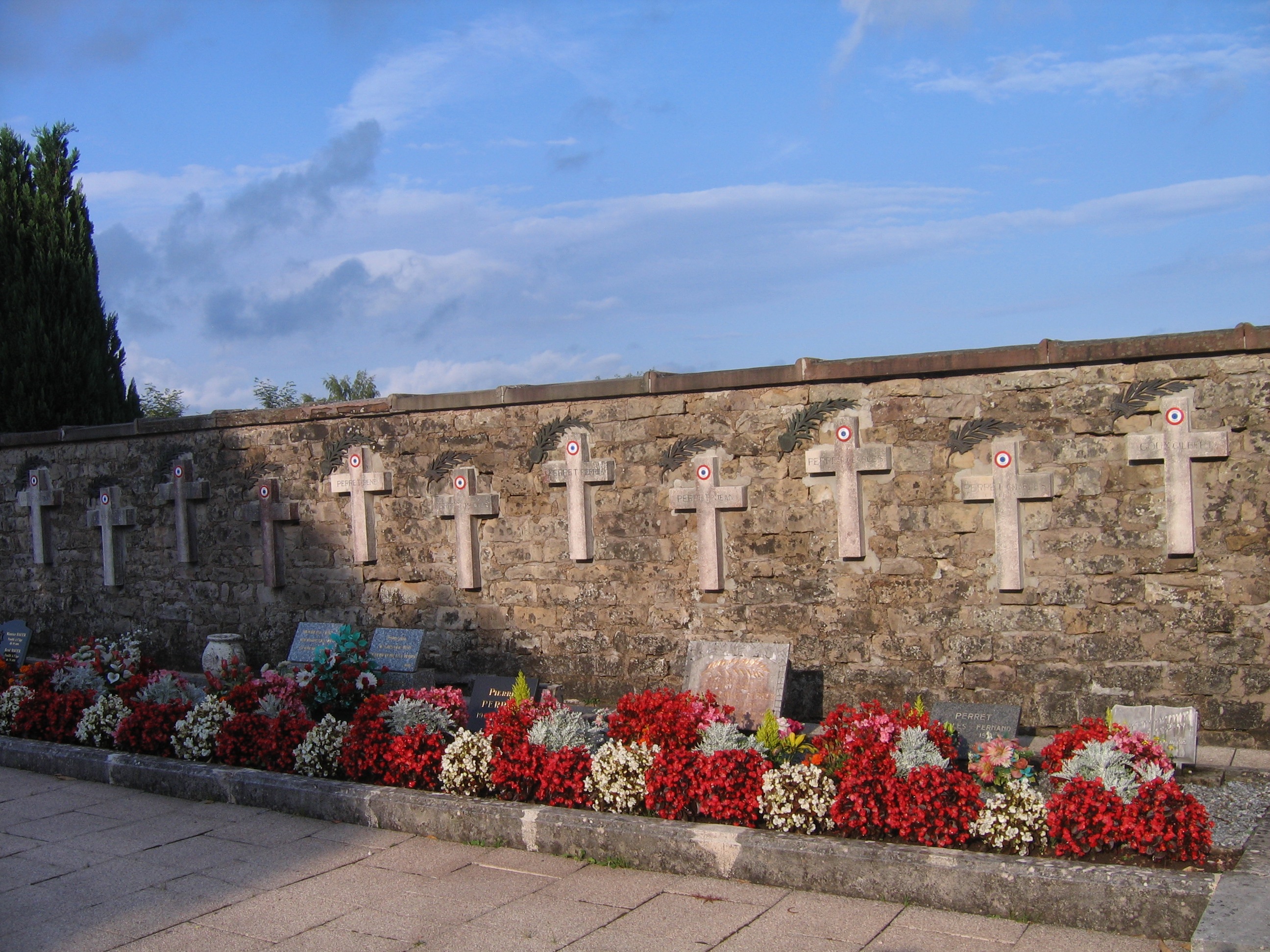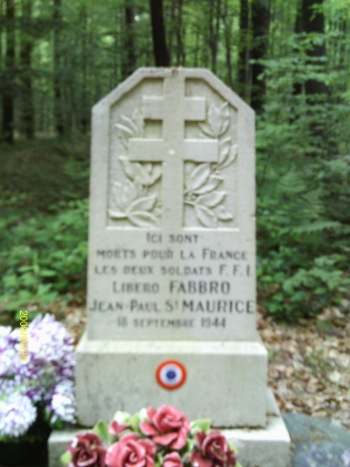The Fighting Continues
As Jules Perret writes in his journal on Thursday, September 7, 1944, “Our maquis is known now. They’re not being careful enough. Their cooking is done at the parsonage, in the middle of the village. How could we resist an attack with so few guns and such poor ammunition? We are at the mercy of the unending columns of retreating Germans along the roads.”
The Etobonais were indeed taking risks. They had captured German soldiers whom they had wounded in small skirmishes. On Friday, September 8, some of the gendarmes who had become resistance ambushed a German soldier who was riding a bicycle near Chenebier and shot him in the leg. He was brought back to the parsonage where Mme. Marlier tended to his wounds.
On Saturday, September 9, a fateful battle took place along a main road through the woods. Jules Tournier, the field commander of the Etobon maquis, led a group of men to ambush a German convoy. They had planned to meet the convoy at a bend in the road, and had stationed a lookout to fire a warning shot as the Germans approached. Somehow, a shot was fired too soon.
A motorcycle guard and a carload of officers were the first of the convoy to reach the bend. The maquis opened fire. Then, two open trucks of soldiers with machine guns arrived and opened fire on the French. A full-scale battle began. Tournier, the commander, was shot through the heart and died on the road.

 Katherine Douglass
Katherine Douglass